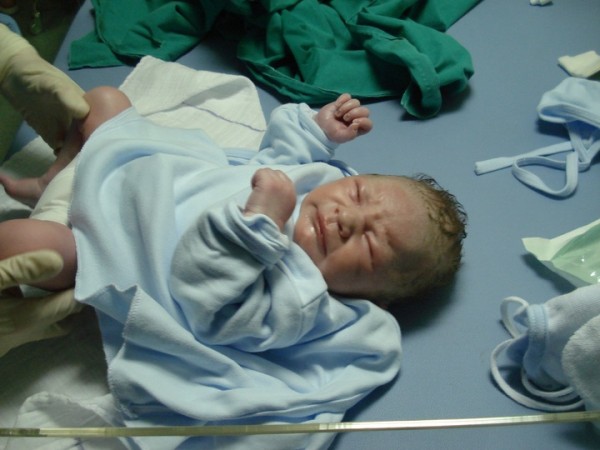New Study Suggests Waterbirths Pose No Risk of NICU or Special Care Nursery Admission
A new US study of waterbirths showed hospital-based births that involved water immersion did not have any higher risk of admission to neonatal intensive care unit or NICU or special care nursery than similar deliveries in the control group that does not involve water immersion.
The main objective of this research, published in the Obstetrics and Gynecology journal, is to address the absence of a methodologically sound study on "maternal and neonatal outcomes for waterbirths."
The professional organization, American College of Obstetrician and Gynecologists or ACOG, which sets criteria for obstetric practice, previously came up with a conclusion that "water immersion during the first stage of labor" is safe for women who have an uncomplicated and full-term pregnancy.
The study also found that water immersion during labor offers benefits of pain relief, reduced need for analgesics, shorter time of labor, and increased satisfaction among patients.
Nonetheless, ACOG also determined an absence of elegant research to aid in the identification of risks and advantages of water immersion during labor's second stage, when a woman is completely dilated and can already actively push during contractions.
ALSO READ: BYU's Animation-Streaming Glasses: A Promising Device for Children with Autism

This new study primarily focuses on both the mother and newborns’ safety, and thus there is a need to guarantee they are basing their practices on the best evidence that existed.
Primary Focus of the Study
According to Allina Health's Mother-Baby service line president, perinatologist, Dr. Lisa Saul, this research showed that the system the study authors put in place "offers waterbirth in the context of a strong clinical program" that guarantees the patients' safety.
Saul, who is also co-author of the study, added, as a health system, they want to provide women as many options as possible to help them manage the pain while in labor.
The researchers' primary focus was always on both the mother's and newborns' safety, and thus there is a need to guarantee they are basing their practices on the best evidence that existed.
To address the non-existence of quality research on waterbirth outcomes during labor's second stage, Allina Health spearheaded a multi-study.
Specifically, the said study involved data from more than 580 births for four years, from 2014 to 2018, from eight hospitals in the Allina Health and HealthPartners systems, and a matched comparison group, exactly of 583 births to women who met the standards for waterbirth although did not experience water immersion while in labor.
DON'T MISS THIS: 6 Reasons Why You're Gaining Weight Unintentionally
The 'Waterbirth' Method
As waterbirth has turned out to be more popular in the United States, it is essential for professionals to be able to report their practices and guidelines in the context of the clinical standards of the US.
Before the release of this study, just a few studies were investigating waterbirth outcomes in the US, as well as those mostly focused on deliveries outside the hospital background like birth centers and home births.
Previous research on waterbirths done mainly in Europe had different clinical protocols that were frequently not described, making it difficult to understand how clinical protocols might impact such outcomes.
Furthermore, prior studies frequently lacked strong study designs, and therefore, were subject to possible sources of bias.
This new study provides new methodological strengths that do not exist in a lot of past research like a "large sample size and matching" strategy used to guarantee comparability between mothers delivering in water and the comparison group.
In line with the recommendations of the ACOG, Allina and HealthPartners developed strict protocols for selecting candidates, maintaining and cleaning the tub, monitoring mothers and their fetuses, and moving women from tubs should maternal, or fetal concerns arise.
Study Finding
Reports on this study indicate that the proportion of deliveries with admission to the special care nursery or NICU was substantially lower for women who had second-stage immersion compared to the control group.
In addition, there was no difference in the admissions to special care nursery and NICU for deliveries that had first-stage immersion only.
Meanwhile, as indicated in this study, of the secondary neonatal outcomes analyzed, like the "respiratory distress, anemia, sepsis, asphyxia or death," no substantial differences were found between water immersion groups "and matched deliveries in the control group."
A probable benefit determined in this research for women was the decreased possibility of lacerations during delivery.
Specifically, women belonging to the second-stage water immersion group were 50 percent as possible as women in the comparison group to encounter any laceration.
IN CASE YOU MISSED THIS: Is Excessive Exercise Linked to Eating Disorders? Here's What Studies Say
Check out more news and information on Pregnancy on MD News Daily.
Oct 15, 2020 07:00 AM EDT





